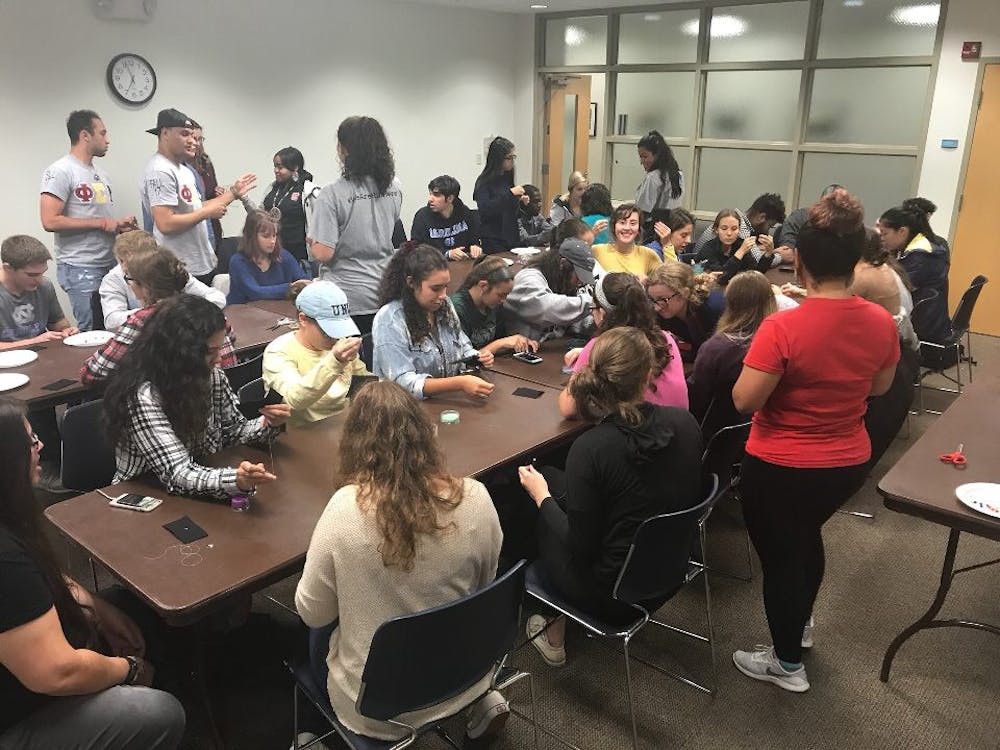With November marking National American Indian Heritage Month, assistant professor of American Studies, Benjamin Frey, thinks the month means more than just preserving the memory of native tribes.
“I really don’t like that word ‘preservation,’” Frey said. “To me, it places too much emphasis on the past and keeping things like they were, and I think that’s one of the systemic problems with the way people think about American Indians in general — which is thinking about us as relegated to the past.”
Frey is a member of the Eastern Band of Cherokee Indians, one of eight state-recognized American Indian tribes. Along with being an assistant professor at the University, he also heads Cherokee Coffee Hour. This event, held every Tuesday during the school year, allows students, faculty and staff to gather in a non-classroom environment where Frey teaches them the complexities of the Cherokee language.
Unlike more commonly spoken languages, Frey said many people aren’t aware that the language of the Cherokee tribe or other American Indian tribes even exist. He started the Cherokee Coffee Hour in 2013 as a way to introduce this idea to students and lead them to other avenues of American Indian cultures and practices.
“All of these tribes, including the Eastern Band, are part of North Carolina’s history,” Frey said. “And yet, so little representation goes toward American Indians, our heritage, our contemporary lives and our futures, that there’s got to be something done. So if we want to emphasize the living, changing nature of our communities, one thing we can do is study the language.”
Senior Cheyenne McNeill contributed her own native culture to students to celebrate the month. As a member of the Coharie, McNeill learned the practice of beading from her mother growing up. Tuesday night, she hosted a beading workshop open to students, where she taught them the basic “flat stitch.”
Beading is a big part of Native American cultures in general, particularly for southeastern natives. It involves weaving tiny beads of various colors together to make jewelry and other items. McNeill said that for every bead used in beading, a prayer is said.
“To see how difficult it can be and how long it takes to make a couple lines versus a whole piece, I think it gives people a different appreciation and respect for our culture and our practices in general,” McNeill said.
McNeill will also help host a cultural fitness program entitled “Powwow Sweat” on Nov. 14.




